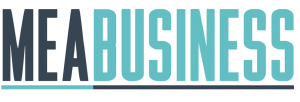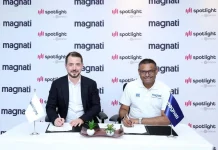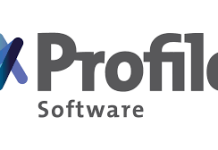Philip Morris International Inc. has unveiled its second Integrated Report, a comprehensive overview of the company’s environmental, social, and governance (ESG) performance and progress toward delivering a smoke-free future. This includes significant goals for 2025: to have switched more than 40 million adult smokers to PMI’s smoke-free products, half of them from non-OECD countries, and for smoke-free products to account for more than 50 percent of PMI’s total net revenues.
Further accelerating PMI’s transformation, this year the company introduced two new 2025 ambitions, linked to its Business Transformation Metrics: for its smoke-free products to be available in 100 markets and for at least USD 1 billion in annual net revenues to come from “beyond nicotine” products. The Integrated Report also outlines case studies of early indications of PMI’s smoke-free products’ impacts in markets where such products have a meaningful presence.
Tarkan Demirbas, Vice President Middle East at Philip Morris Management Services (PMMS) said: “This is PMI’s second Integrated Report that highlights PMI’s efforts to make a positive impact. The global pandemic has demonstrated that more than ever, there is a greater need for businesses to deploy technology and innovation to help drive change – be it tobacco harm reduction, environmental impact, or social impact. PMI has set ambitious targets that are underpinned by a robust ESG program and is committed to create a sustainable future. In order to contribute to PMI’s 2025 Roadmap when it comes to litter prevention and our target to reduce plastic litter from our products by 50% (versus 2021), in the UAE we launched our local Our World is Not an Ashtray campaign last year with the aim to raise awareness and drive change in behavior and attitudes among adult smokers in the UAE. We look forward to executing our planned activities in the coming period to educate consumers about littering and support the UAE’s Environmental Policy.”
PMI’s Integrated Report 2020 demonstrates how the organization’s strategy, governance, and performance create value. To showcase impact, the company reports on progress in various ESG areas, including toward achieving its ambitious 2025 Roadmap—a set of forward-looking targets pertaining to all Tier 1 topics from PMI’s sustainability materiality assessment.
The report highlights PMI’s most material sustainability topics, including the health impacts of its products—an aspect often not captured by external ESG assessments—and describes how the company is working toward researching, developing, and commercializing scientifically substantiated better alternatives to continued smoking for those adults who do not quit. It also includes a new section on the company’s business transformation—which extends beyond changing the product—and an update on its Business Transformation Metrics (BTMs).
“Despite the unprecedented challenges brought on by the global pandemic, we have not deviated from our efforts to show care, support those in our orbit, and continue our quest to become a more sustainable company,” said Jennifer Motles, Chief Sustainability Officer. “As we continue to transform, stakeholder engagement and constructive dialogue remain paramount to this evolution. In 2020, multi-stakeholder partnerships were key to the significant progress we made toward addressing many of our priority sustainability topics, ranging from protecting the health and safety of our employees to safeguarding the human rights of those impacted by our business and accelerating efforts to mitigate our impact on climate change throughout our value chain.”
The report was prepared following the Integrated Reporting <IR> framework and is in accordance with the Global Reporting Initiative (GRI) Standards (core option). It aligns with the principles and standards of the UN Global Compact (UNGC) and indicates contributions to the UN Sustainable Development Goals (SDGs) and corresponding targets. PMI’s Integrated Report addresses some recommendations of the Task Force on Climate-related Financial Disclosures (TCFD), with its environmental reporting to CDP covering most of the remainder.
It also considers guidance from the Sustainability Accounting Standards Board (SASB). Furthermore, for the first time—and as a result of PMI’s business transformation—it cross-references most aspects of the SASB standards defined for Technology & Communications, more concretely the Hardware Standard, and it also describes alignment with some aspects of the standards developed for the healthcare industry, specifically the Medical Equipment and Supplies Standard.
Finally, the content of PMI’s Integrated Report 2020 is mapped against the 21 metrics defined by the International Business Council / World Economic Forum’s “Measuring Stakeholder Capitalism: Towards Common Metrics and Consistent Reporting of Sustainable Value Creation” white paper to further reflect the importance of stakeholders, as per PMI’s Statement of Purpose.
Stakeholders can download the full Integrated Report 2020, as well as indexes mapping the company’s disclosures to internationally recognized frameworks, on the newly refreshed PMI.com/sustainability, including details about the company’s 16 Tier 2 sustainability topics.
Progress on PMI’s Business Transformation
- As of December 31, 2020, IQOS was available for sale in 64 markets, including the UAE, Saudi Arabia and Kuwait. An estimated 12.7 million adult smokers had switched to IQOSand stopped smoking, out of 17.5 million total IQOS
- In 2020, PMI invested USD 495 million in R&D expenditures, nearly 100 percent of which was dedicated to smoke-free products.
- PMI’s smoke-free product net revenues accounted for 23.8 percent of total net revenues in 2020, compared with 0.2 percent in 2015
- PMI’s smoke-free product shipment volume accounted for over 10 percent of total shipment volume in 2020, compared with 0.1 percent in 2015.




























